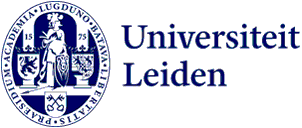
The Nuance Project: Respectful dialogue about sensitive topics give students hope
Students from Leiden University have launched The Nuance Project, a platform for respectful, open-minded dialogue on divisive issues. The aim is to foster connection and understanding among people even if their viewpoints differ.
The initiators of The Nuance Project have noticed how discussions about controversial issues often resemble a political debate and can play into the hands of polarisation. The students aim to promote dialogue and humanity in their bi-weekly sessions. ‘People share their perspectives and experiences in the sessions’, says Ezra Pardovitch. ‘When you stop reducing the other to your ideological opposite but acknowledge them as a rational person who can form their own opinion, you create an atmosphere of mutual respect.’
Understanding
The initiators have personal reasons for starting the project. Pardovitch is from a Jewish background and has experienced increasing discrimination in recent years. In conversations with other students, he has noticed that people who are supposedly on opposing sides can find common ground in the feelings they experience. His call for understanding and humanity in his degree programme’s app group, where unpleasant messages were posted about both Israel and Gaza after 7 October, brought him into contact with other students.
People who are supposedly on opposing sides can find common ground in the feelings they experience.
Two of these students were Anousha Hikmat and Inbar Avraham, who like Pardovitch were also on a similar quest. Hikmat and Avraham got talking after a lecture about the conflict. ‘Our opinions on the conflict differed but our conversation helped shift the emphasis to humanity and that had an effect on me’, says Hikmat.
Connection
At a young age, Hikmat fled Afghanistan with her family and grew up in a conservative environment in the Netherlands. ‘I experienced how important it is to seek contact with different people. That generates understanding and can break down prejudices.’ For her, it is about the power of connection, self-determination and the ability to look beyond cultural and ideological differences. ‘I know how harmful polarisation from above and a lack of dialogue can be.’ It pains her to have seen this in both Afghanistan and the Netherlands.
‘I know how harmful polarisation from above and a lack of dialogue can be.’
Zayaan Noorani was also seeking humanity and succeeded Avraham as a Nuance Project organiser. She heard different opinions and wanted to understand why people have certain ideas. ‘I find it difficult just to ask someone that.’ She felt there was a lack of space for open conversations with others. Noorani emphasises that understanding others is important but so too is being able to share your thoughts without fear of criticism. She hopes that listening to each other’s experiences will foster mutual respect and understanding.
Different interpretations of words
For a few months now, The Nuance Project has been a place where you can feel heard. Each session is about a specific topic and is led by a facilitator. Previous sessions have been about campus safety or terminology, for example. Many terms, concepts, slogans and words hold different meanings for different people. ‘If you get how someone interprets a certain slogan, you also get why that person uses it. And if you discuss it, you also understand what feelings it can evoke in others’, Pardovitch explains.
Hope
After each session, the students send out a survey asking participants to share their experiences. The word ‘hope’ crops up surprisingly often in the replies. Participants feel heard, understood and free to share their opinions without being forced into a certain camp. Two initiators say they feel less lonely and anxious than at first. They feel able to talk about their feelings and that they count. ‘It gives me hope that others are also seeking connection and want to listen’, says Hikmat.
More information about The Nuance Project can be found on the POPcorner The Hague page, where you can also sign up for a session. There is also a WhatsApp community with the latest news about the sessions.
Text and photo: Dagmar Aarts
Photo: Zayaan Noorani, Anousha Hikmat and Ezra Pardovitch
